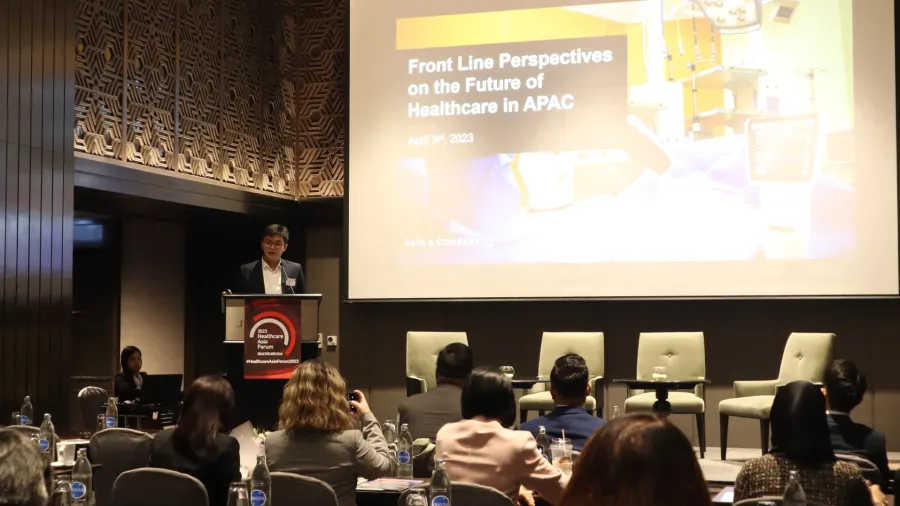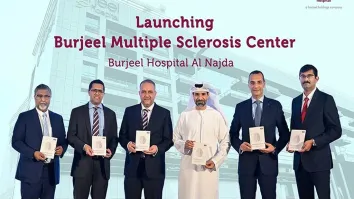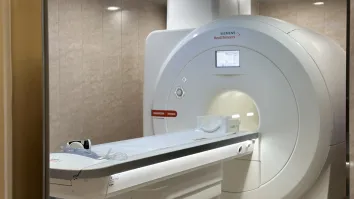
Moving forward: Digital health, drug pricing opportunities in a post-pandemic world
The half-day Healthcare Asia Bangkok forum was attended by industry leaders and experts across Thailand’s healthcare sector.
As the healthcare sector in Asia transitions into a new normal, it is being impacted by new trends and drivers. Healthcare organisations have reevaluated their priorities and procedures to conform to the latest methods of offering patient care whilst also encountering innovative developments in the field.
To highlight the key trends and issues shaping the future of healthcare, the Healthcare Asia Magazine brought together experts and industry leaders in the half-day Healthcare Asia Forum in Bangkok, held last April 3 at the JW Marriott Bangkok.
Digital Transformation and Sustainability in Healthcare
Calvin Wijaya, Senior Manager at Bain & Company, started the presentations with a discussion of the organisation’s latest insights on the healthcare industry. Wijaya noted that the pandemic had forced healthcare providers to rethink their care delivery methods. There has been a rise in consumerism in health, a realignment of trust amongst stakeholders, and an increasing desire for simplicity and convenience for consumers, and technology now plays a greater role in helping healthcare companies.
Now, patients are looking for a single touchpoint for their care, but it has also become frustrating for them given the multitude of options to choose from. Given this, Wijaya suggested that a winning healthcare model of the future will be patient-centric, personalised, and features connectivity and omnichannel delivery.
Wijaya added that with the rise of telehealth, digital technology is now able to make patient care more convenient, efficient, and effective, whilst also improving the patient experience. However, he stressed that there are limitations to the services that can be offered through telehealth, so it is important to work on a connected, omnichannel experience both online and offline.
As the digitally savvy patient base grows, he believes that technology and data analytics will continue to be adopted across the care continuum, and the region can look forward to more cutting-edge services and innovations in the future.
For the second speaking session as well as the Q&A section, Dr Suebsakul Tonjang, Innovative Sustainability Manager at BDMS Innovative Sustainability, talked about the challenges facing healthcare today and best practices to improve sustainability within the sector.
Tonjang admitted that environmental management in a healthcare setup, particularly in a hospital, can be difficult since equipment and other materials in this setting will be used for patient care. However, he posited several ways to reduce energy.
"We can’t decrease the [use] of energy in [an] organisation because it may affect patient care as well. However, we try to use free energy and renewable energy in our organisation," he said, pointing out that BDMS has harnessed solar energy in some of its hospitals.
Shin Thant Aung, Director at YCP Solidiance, then discussed Digital Health Transformation and Telemedicine 2.0. He highlighted the growing importance of digital health transformation and telemedicine in Thailand, especially in addressing the health concerns of an ageing population.
He pointed out common challenges faced by traditional healthcare systems in Thailand, which can be managed through digitalisation: insufficient healthcare resources, access to healthcare in remote areas, and the rising costs of healthcare. Aung also emphasised the need to adopt Electronic Health Record (EHR) systems.
Aung listed the differences between Telemedicine 1.0 and Telemedicine 2.0, with the latter having more features and using more advanced technologies. Meanwhile, he said that YCP Solidiance anticipates the following improvements in telemedicine in the future: increased collaboration between public and private entities, increased investment in the healthcare industry, and integration of digital technologies.
Health Economics and Drug Pricing
For his speaking session, Dr Gunnaphon Anamnart, Chief of Academic Center at Bangkok Hospital Rayong, talked about Health Economics in the Private Sector after COVID-19 Disruption. He dove into how the pandemic affected healthcare economies, how organisations can keep patients engaged, and how to balance business with standard medical care.
He highlighted that leaders must be careful when brainstorming ways to resolve problems faced by their organisation. They have to consider trends worth looking into and make sure there is flexibility to design new solutions. He also stressed the key to success in patient engagement—that healthcare providers allow patients to participate in their treatment with cultural and religious concerns taken into consideration.
“As healthcare providers, sometimes we decide everything for the patient, and the patient will not participate in their own treatment,” he noted.
The last speaking session was on the topic of drug pricing and the role of International Price Referencing in Asia, led by Simon-Kucher’s Director for Healthcare and Life Sciences Joshua Siow.
Siow discussed how International Reference Pricing (IRP) is used by governments—including the Thai Ministry of Health—to set the prices of pharmaceutical products. He also explained the different methods for pricing drugs as well as the positive and negative impacts of IRP.
On the positive side, IRP can be a powerful tool for cost containment and reducing the overall budget impact for payers. However, it also comes with trade-offs such as deviation from value-based pricing, potentially leading to pharmaceutical companies being paid lower prices than the value they bring to patients.
Siow then offered smarter solutions for drug pricing that can be a “win-win” for pharma manufacturers, payers, and patients alike: focusing on prevention over cure, limiting price referencing towards generic medicines, and using confidential contracting for innovative medicines. He stressed the need to evaluate the effectiveness of IRP and explore alternative strategies to ensure that patients have timely access to affordable and innovative medicines.
The forum closed with a panel session featuring Anamnart, Siow, and Aung. The discussion was moderated by Tim Charlton, publisher of Healthcare Asia. The three experts answered questions from attendees as well as dove into the various challenges in digital health and drug pricing and how they see the future of these aspects of healthcare.
Siow and Anamnart highlighted that there should be a joint responsibility between different stakeholders, particularly public and private hospitals, to change the healthcare system and improve pharmaceutical prices, specifically in Thailand. Likewise, Aung highlighted the benefits of digitalisation in hospitals and urged both public and private hospitals to adopt it.
"I really advocate for most of the private hospitals, public hospitals here to do digitalisation because the future is here," Aung said.

















 Advertise
Advertise






